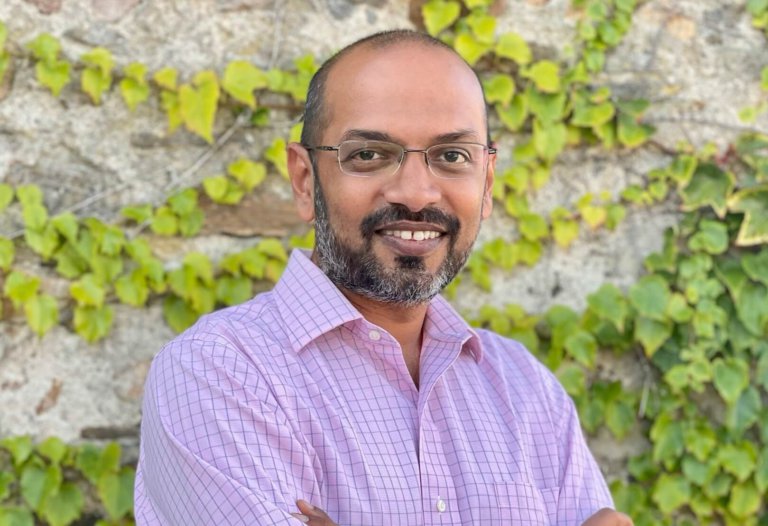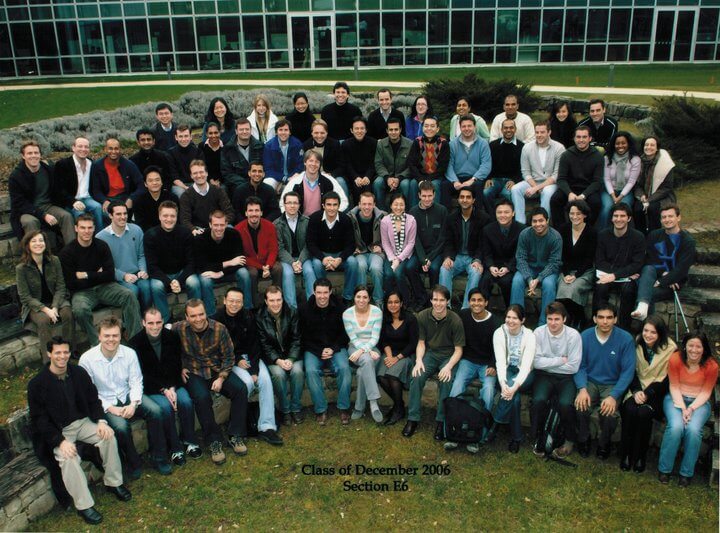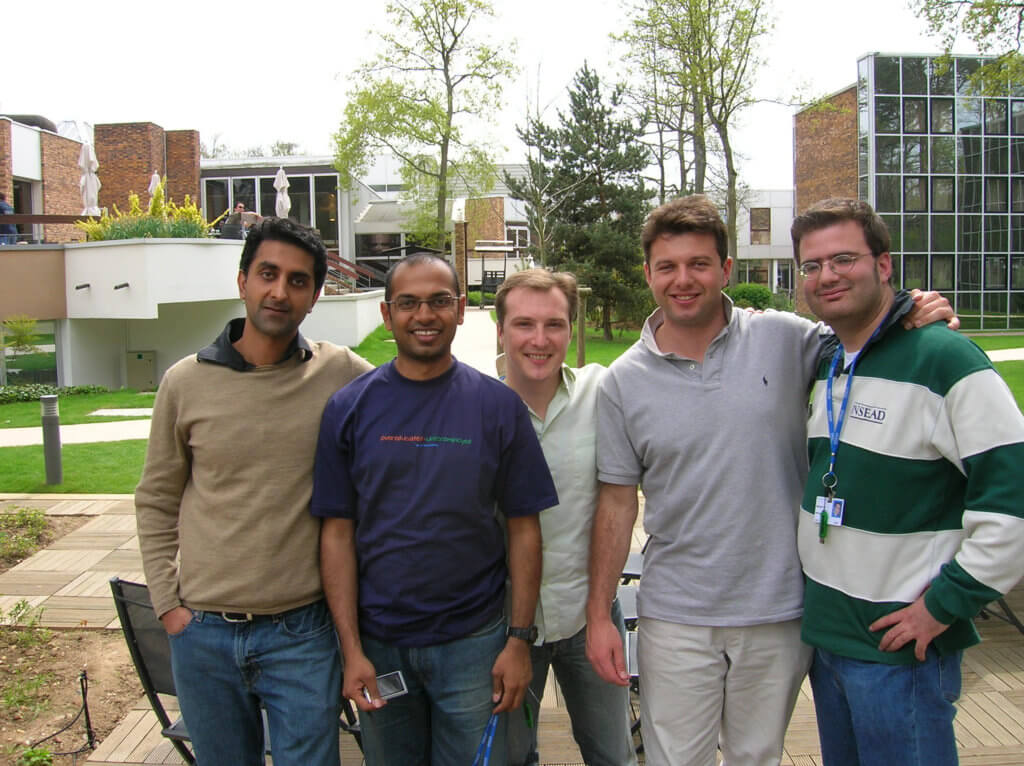
INSEAD MBA graduates are known to be some of the most accomplished individuals — Chaitanya Kalipatnapu is one of them. After graduating, he co-founded India’s fourth edtech unicorn Eruditus, which runs the Emeritus Institute of Management and has recently raised US$650 million.
As a global platform for online education, Eruditus collaborates with top unis to offer more than 250 executive-level courses to students across 80 nations. It provides specialised courses aimed at higher education students which cost between US$1,500 to $40,000. Emeritus, on the other hand, provides short-term courses to middle managers.
What’s special about Kalipatnapu’s startup is that they work with more than 20 top-tier unis and is backed by the likes of the Chan Zuckerberg Initiative and Sequoia Capital India. Below, we speak to him about this global online education platform, his journey from village boy to successful INSEAD MBA graduate, and advice on how to balance work and social life:
Where did your interest in IT come from?
The short story is that I went into IT fortuitously and I fell in love with it. The longer version of it has to start by introducing my background.
I come from a small town in the south of India where every parent wishes their child would aspire to be an engineer or a doctor. Thanks to my inclination in maths, I studied engineering.
Right before my undergraduate years when the Internet was taking off in India, I had my first brush in IT. It really fascinated me in terms of the power and impact it has in creating a “borderless” society.
Also, how it’s changed communications and the way information is transmitted. It was one of the big factors for me to pursue IT and later build a career around it. Of course, back then I was a 17-year-old and I had no idea of the scale of its impact today.

“I have a unique experience as I had the chance to do my internship at INSEAD for six months because my uni in India had a collaboration with them,” he says. Source: Chaitanya Kalipatnapu
Why did you choose to pursue an MBA at INSEAD from there?
I have a unique experience as I had the chance to do my internship at INSEAD for six months because my uni in India had a collaboration with them. I started as a software developer there.
I went to India for my very first job (at Sun Microsystems now known as part of Oracle). Due to the connection with INSEAD, I went back there for another job.
For three years, I was a research associate working on developing business simulations for the school. During my time there, I had a ringside of the impact of its world-class education on its students and participants.
Thanks to David Weinstein (the professor I was working with there), I was inspired to consider the INSEAD MBA programme. I then took the leap.
What were your most outstanding classes there?
Power and Politics was a very interesting class in terms of understanding power structures. I learn how you navigate diverse business environments and implications.
There was another elective by Phil Anderson on Venture Opportunities and New Business models that teaches you how to launch entrepreneurial ventures and focus on sustainable business models.
Through Phil’s connections, we also had the chance to interact with successful entrepreneurs. These two really stood out during my INSEAD MBA days.

His advice for his younger self? Enjoy the ride!”. Source: Chaitanya Kalipatnapu
As an INSEAD MBA graduate, is there anything you wish you studied more of?
Negotiation skills and influencing and persuasion. The third thing I wished I spent more time on is the subject of leadership communication. These elements are necessary to continuously refine your career.
Walk us through Eruditus and Emeritus and how you help students find courses. What do you think made your company one of the best high competitive edtech startups?
Think of Eruditus and Emeritus as a global platform. We work with the most reputed higher education institutions in the world.
We work closely with them to develop and design programmes for working professionals and enterprises focused on upskilling and reskilling. We also do the marketing, outreach and enable learners across B2B and B2C platforms.
This is across languages in English, Spanish, Mandarin and Portuguese in our programmes. The way we’ve built Eruditus and Emeritus is underpinned by our mission of how we can make high-quality education more accessible and affordable to all corners of the world.
Since 2010, we’ve been super aligned to this mission. It’s a testament where recently Fortune has named us one of the Top 20 Impact Companies. That’s a great motivator.
We like to measure ourselves with the yardstick of the impact we’ve created. Cumulatively at Eruditus and Emeritus, we’ve delivered programmes to 250,000 learners from over 80 countries. We want to reach a goal of 2 to 3 million learners in the next three years.

Kalipatnapu’s INSEAD MBA study group members. Source: Chaitanya Kalipatnapu
Do you have any advice for fresh graduates wanting to enter the edtech industry?
Everyone’s context is different but what I can say is that, when you want to create a new business, you should fundamentally go with the idea of solving a pain point on the market.
There are things waiting to be solved and can also be a monetising opportunity. There are people willing to pay money on a sustained basis for a product or service.
You have to start there instead of just focusing on edtech and funding going into the sector. It only works when you know that the pain point exists and you discover a product-market fit.
If you had a time machine to go back for a one-on-one mentoring session with yourself, what would your advice be?
It’s funny because if I had given that advice to myself, my path would not be the same as it is now. However, I would like to say that I really enjoyed the journey I’ve been on and the chance to venture into it so it would be: “Enjoy the ride!”.
How did you spend your first paycheck?
Besides shoes, clothing. But, more importantly, I bought a set of furniture for my parents for the house they built at that time.
Lastly, what matters more to you: work satisfaction, salary, social life or a work/life balance?
Coca-Cola’s former CEO Brian Dyson once addressed priorities in life using a metaphor of juggling five balls: work, family, friends, health and spirit. “You will soon understand that work is a rubber ball. If you drop it, it will bounce back. But the other four balls are made of glass. If you drop one of these, they will break, shatter or be damaged. You must understand that and strive for balance in your life.”.
So, I really believe in that. Taking great care of the other four elements by spending time with family and friends taking care of my health, and looking out for my spiritual wellbeing to be a good human.
Work can take care of itself and the input metrics for this is more important. Doing it with passion, sincerity and integrity. I believe that the balance between work and life is very important.










